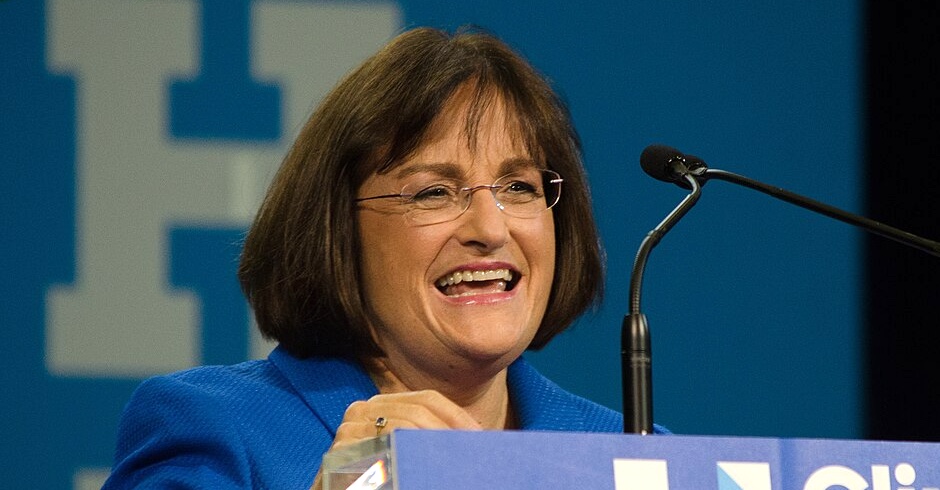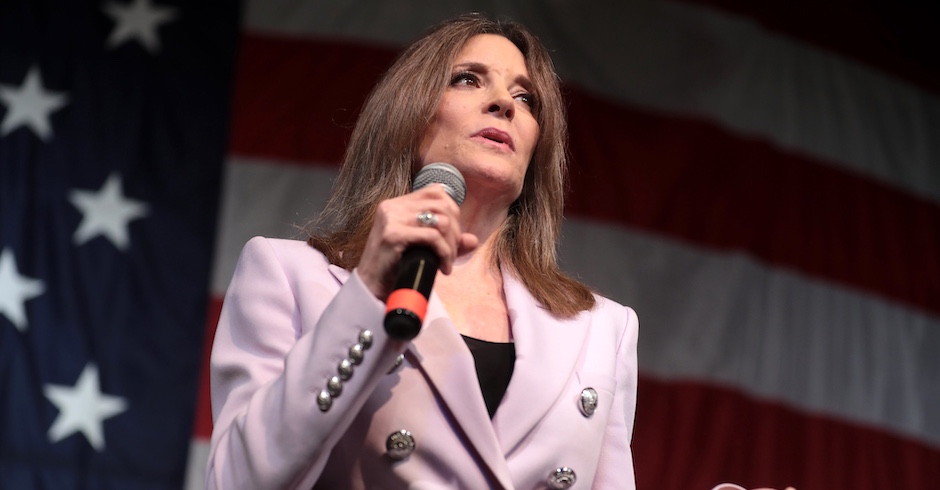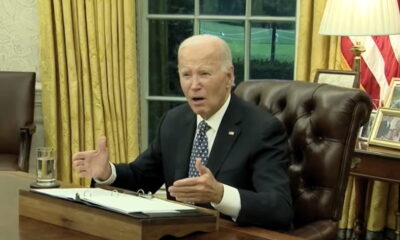‘Tremendous Job’: Trump Congratulates Wounded Soldier While Awarding Him the Purple Heart (Video)
“Tremendous, Tremendous Job”
Donald Trump visited the Walter Reed National Military Medical Center on Saturday to congratulate Sgt. 1st Class Alvaro Barrientos as he awarded him the Purple Heart.
The Purple Heart is awarded to U.S. service members who are wounded or killed in action while serving their country.
Pres. Trump awards Purple Heart to Army Sgt. Alvaro Barrientos, who was recently wounded in Afghanistan https://t.co/Xucpktr8ji pic.twitter.com/RhZaQbugwY
— ABC News (@ABC) April 22, 2017
“So I heard about this, I wanted to do this myself,†Trump said as he presented the wounded soldier with the award. According to the Associated Press, Barrientos was wounded in Afghanistan in March, resulting in the amputation of his right leg below the knee.
“Congratulations on behalf of Melania and myself and the entire nation,†the president said to Barrientos, his wife Tammy and Melania Trump before posing for photographs. “Tremendous, tremendous job. Congratulations.”
Trump previously boasted on the campaign trail that a veteran and supporter of his had given him his Purple Heart. “I always wanted to get the Purple Heart,†then candidate Trump said. “This was much easier.†The full video can be seen below:
Trump’s remarks drew criticism from Purple Heart recipients across the nation.
To comment on this article and other NCRM content, visit our Facebook page.

Enjoy this piece?
… then let us make a small request. The New Civil Rights Movement depends on readers like you to meet our ongoing expenses and continue producing quality progressive journalism. Three Silicon Valley giants consume 70 percent of all online advertising dollars, so we need your help to continue doing what we do.
NCRM is independent. You won’t find mainstream media bias here. From unflinching coverage of religious extremism, to spotlighting efforts to roll back our rights, NCRM continues to speak truth to power. America needs independent voices like NCRM to be sure no one is forgotten.
Every reader contribution, whatever the amount, makes a tremendous difference. Help ensure NCRM remains independent long into the future. Support progressive journalism with a one-time contribution to NCRM, or click here to become a subscriber. Thank you. Click here to donate by check.
 |






















